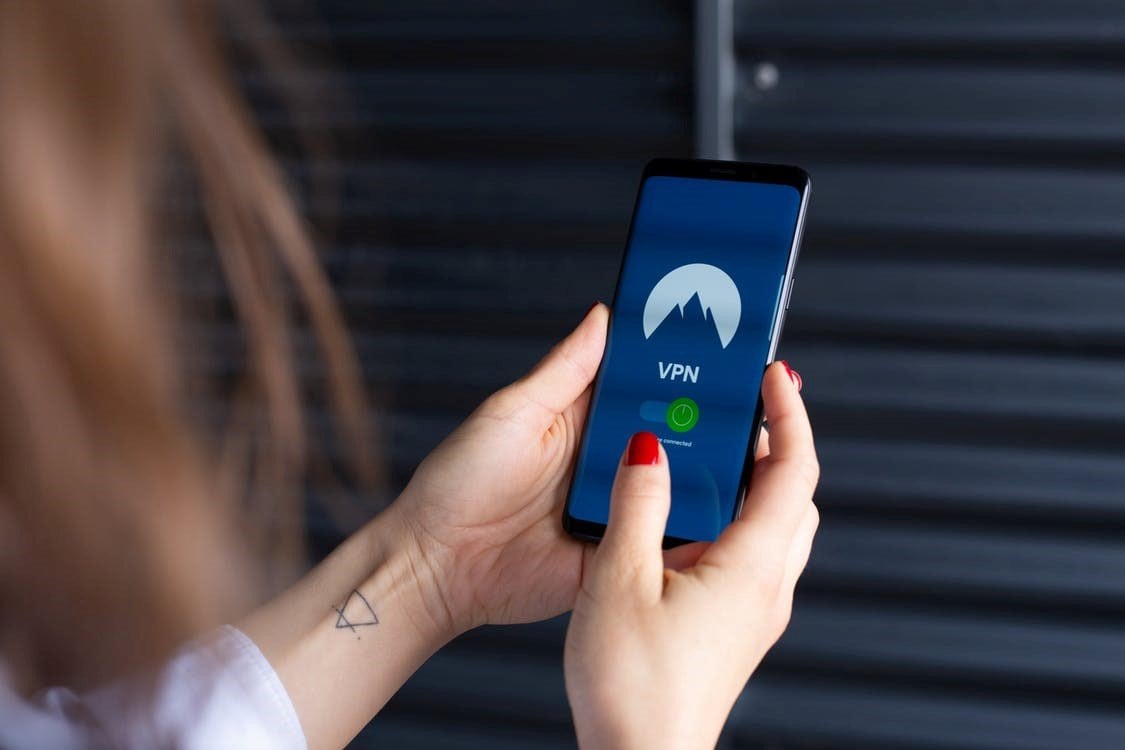[oc_spacer height=”15″]It is well known that sensitive user data can be tapped on the internet. VPN should prevent this and protect the privacy of users. Read here what VPN is about, why it doesn’t have to be the ideal solution for secure internet access and why oneclick™ is a suitable VPN alternative:
What is VPN?
A VPN (Virtual Private Network) is a secure tunnel that exists between two or more devices. It creates a secure, encrypted connection with a less secure network, such as the public internet. These “tunnels” are generated by encrypting data at the end from which it is sent and decrypting it again at the destination end. In addition, not only the sent data, but also the network addresses of the sender and receiver can be concealed.
How does VPN Work?
VPN is done via a VPN provider or a firewall. In this case, the user’s connection is forwarded via a server. The user starts the VPN client and this software encrypts the data before it is visible to the internet service provider. The data thus reaches the online destination via the VPN server, leaving the device used and its location unrecognisable.
What is VPN Used for?
VPN is primarily used to protect the privacy of the user. For all end devices, such as smartphones, notebooks or tablets, equally applies that data traffic can be read by third parties under certain circumstances as soon as a public network is used for internet access. A VPN tunnel can solve this problem because, depending on the VPN protocol, encryption of all network packets up to the exit of the VPN tunnel is possible. In addition, the person who may be reading along can only recognise a connection to the VPN gateway, but the actual destination remains hidden.
Why is VPN so Complicated for End Users?
Even if VPN preserves the anonymity of internet users, its deployment can be quite complicated for end users. The actual security of the VPN depends on the quality of the chosen provider and its head office, as the laws of the country may require the provider to disclose information about its customers’ activities. In addition, depending on the quality of the VPN, the bandwidth is reduced during use. The extent of the difference in performance depends primarily on the services used and the distance from the VPN provider.
The actual quality of the encryption, on the other hand, is difficult for the private user to assess. If no simple design available, private users may require a lot of time may for set up – depending on the type of VPN, setting up security protocols may not be trivial. However, manual setup and possibly incorrect VPN configurations can lead to security vulnerabilities. Of course, there are price differences between VPN providers and it can be complicated for users to research which functions and components they actually need. In addition, the use of VPN is even illegal in some countries. Some sites prevent access via VPN and some firewalls block the Virtual Private Network because the technology can be used for criminal purposes. This of course limits the user friendliness.
Why is VPN Maintenance Cumbersome for IT admins?
But the use of VPN can be complicated not only for end users, it also poses some challenges for IT administrators. VPN is not necessarily the best choice to protect corporate IT from data theft. On the one hand, some VPNs can only be scaled to a limited extent. Thus, there is only a limited number of concurrent connections allowed per service. This is completely unsuitable for agile companies whose employees are to work on the move, because employees first have to tediously dial into a database via VPN when working remotely.
For IT administrators, VPN means complicated and cumbersome handling of the necessary clients. In addition, there are the previously mentioned problems with speed, because VPN throttles the transmission rate in many cases. VPN also reaches its limits in terms of security. Since a VPN tunnel represents a direct connection to the corporate network, even one single stolen or compromised end device can represent a fatal security risk for sensitive data and the IT infrastructure. In addition, there are problems with firewalls.
If the company has multiple offices, IT managers are faced with a high degree of complexity and must comply with comprehensive security and compliance policies. Furthermore, high costs are incurred for setting up, managing and maintaining the connections between the remote locations and the corporate headquarters. Moreover, there are few VPN solutions that can accommodate multiple endpoints without requiring users to handle multiple VPN clients.
Why are Businesses Searching for a VPN Alternative?
Companies are undergoing comprehensive change. Internal applications that used to be hosted in their own data centres are now being moved to the cloud. Among other things, this helps to achieve better scalability and higher productivity. On the other hand, migration also requires new security solutions and breaks with the conventional VPN approach. This worked well for applications in data centres, where the internal LAN was equipped with an additional security layer and internal services could be placed behind a firewall. With applications from the cloud, however, the parameters shift to the internet – and DMZ was ultimately not developed to protect the internet.
At the same time, the number of end devices of employees linked to internal applications is constantly increasing. Here, too, IT managers have to find answers to new security challenges and are therefore looking for a VPN alternative.
oneclick™ as Perfect VPN Alternative
Using oneclick™ eliminates the need for the user to access multiple endpoints and associated VPN clients. The user has access to all shared applications and servers via a workspace in the browser. As a central gateway service and via a secure authentication and delivery procedure, the oneclick™ platform provides access to all connected and released resources. Any suborganisations, departments and groups can be created for user setup. According to the profile, the various applications and servers are released and delivered to the user. oneclick™ not only relieves end users, but also IT administrators, especially in fast-growing companies or at numerous locations. Nevertheless, oneclick™ is not exclusively applicable as a VPN alternative, rather the digital workspaces facilitate the entire work process of employees and thus of the company.
Sources:
- https://vpnoverview.com/de/vpn-informationen/mogliche-nachteile-einer-vpn/
- https://de.vpnmentor.com/blog/die-vor-und-nachteile-von-vpns-alles-du-darueber-wissen-musst/
- https://searchnetworking.techtarget.com/definition/virtual-private-network
- https://www.expressvpn.com/de/what-is-vpn
- https://de.wikipedia.org/wiki/Virtual_Private_Network
- https://www.top-magazin.de/blog/2018/08/01/alles-was-sie-ueber-vpns-wissen-sollten/
Image credits:
- Image 1: energepic.com @ pexels.com
- Image 2: Gem Fortune @ pexels.com
- Image 3: Pixabay @ pexels.com


